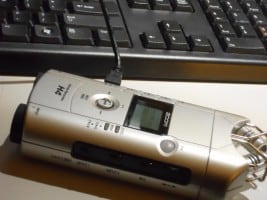As most of you know, we have been actively recording our interviews since we opened our doors as Wicklander-Zulawski in 1982. While we use the recorded interviews to illustrate the techniques in our training sessions, we also use them as a means to monitor and measure our investigators. If a supervisor is simply evaluating interviewer performance based on the subject’s written statement and whether or not the case was successfully closed with an admission and written statement, she may be missing crucial information on the process.
Recording interviews provides outstanding feedback to the interviewer that can’t be replicated by simply sitting in and observing the conversation. Undoubtedly, the supervisor will miss any number of potential critiques because he is listening in real time. The other problem with this mentoring and evaluation strategy is it requires the evaluator to be present at the time of the interview. Being present may be cost prohibitive or time sensitive because of other commitments.
The recording provides an accurate reflection of what happened, when it happened, and how things were said that could never be replicated by an in-person evaluator. Review of the recording can provide significantly more relevant critiques to the new interviewer since he can actually see his behavior and hear his own words and the effect that they are having on the subject. There’s also an opportunity to evaluate behavioral clues that may have been present or verbal statements that could have led the interview in an entirely different direction. We find in our after-action evaluations of WZ interviewers that we can be particularly successful in identifying difficulties or strengths in the conversation.
Many of the participants in WZ‘s Elite Training Days agreed that their organizations’ legal teams are reluctant to use recordings, feeling that an investigator’s testimony is sufficient to defend the company against litigation. It is our feeling that times are changing, and there will be an expectation of a recording that will satisfy what actually occurred during the conversation between the investigator and subject.
We are seeing a significant change in policing across the country, first with the advent of dash cams in squad cars and more recently with body cams worn by officers. The quality of these videos and perspective is often limited, leaving open to interpretation what was actually happening at the time of the incident. But without question, the preliminary response from police departments using cameras has been a significant reduction in citizen complaints.
One of the most widely reported studies of the use of body cams was conducted by the city of Rialto, CA, which reported use-of-force incidents reduced by 59 percent and citizen complaints by 87.5 percent. Other departments have seen similar reductions in use-of-force and citizen complaints since the use of body cams was instituted. It is likely that the body cams significantly alter the police-public encounters since both are consciously aware the conversation is being recorded. This should translate into significant savings on litigation costs and expenses associated with these types of use-of-force or complaint incidents.
Clearly, the officers are aware they are being closely monitored and are thus focused on adhering to their training in handling field incidents. Recording interviews also seems to encourage interviewers to stick closely to the training model chosen for their conversation in a more formal interview setting in the station. The use of the recordings holds the officers accountable to the community in both the formal interview setting at the station and infield encounters.
In a recent expert-witness engagement, the plaintiff’s attorney broached the question of recording interviews. During our testimony relating to recordings, we focused on the differences between an established interviewing room in a law enforcement facility and those who would have to record in a remote location or store facility that was not set up for recordings. In response to these questions, we noted that there were cost considerations a company must evaluate in providing its investigators with recording equipment, as well as maintaining and storing it, preserving the recordings, and reviewing the recordings, to name but a few.
In the business world, there is always going to be a close examination of the return on investment before any capital expenditures are made. Because of the random nature of recording in the field, there would also be issues relating to recordings that were incomplete because of equipment problems, audio that was garbled due to microphone malfunctions or background noise, and potentially the space available to remotely store the recording. This does not even mention the possibility of human error compromising the operation of the equipment, which may come into play as well.
The debate continues…
Check out the full article, “To Record or Not to Record,” which was published in LP Magazine in 2016. This excerpt was updated January 30, 2018.


